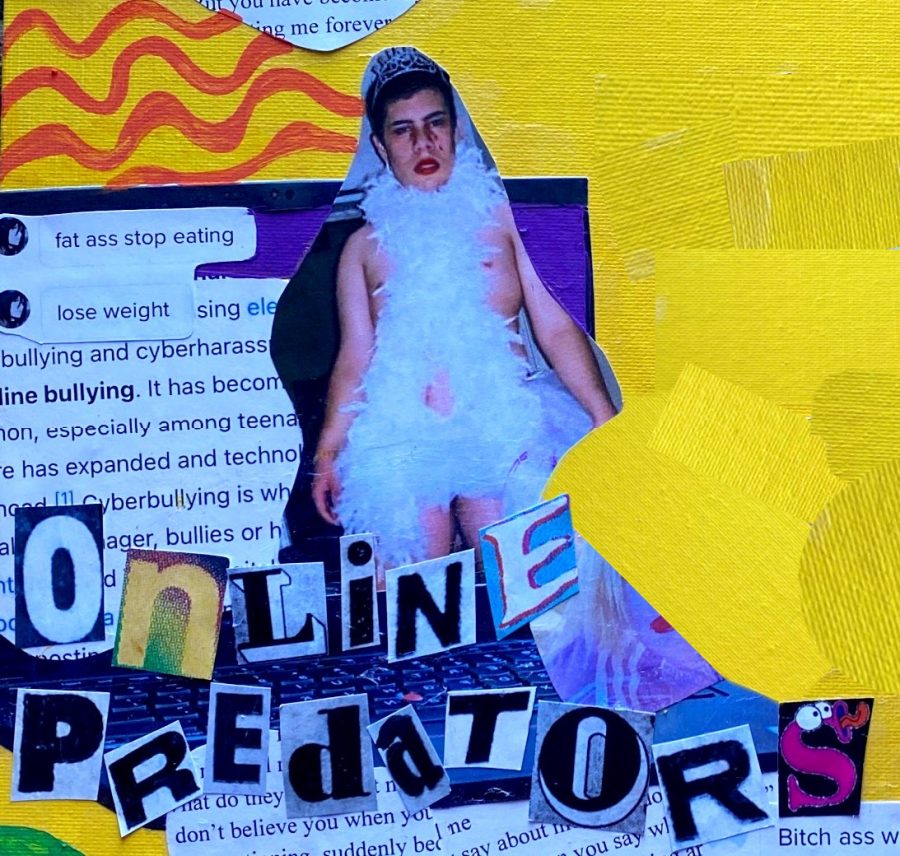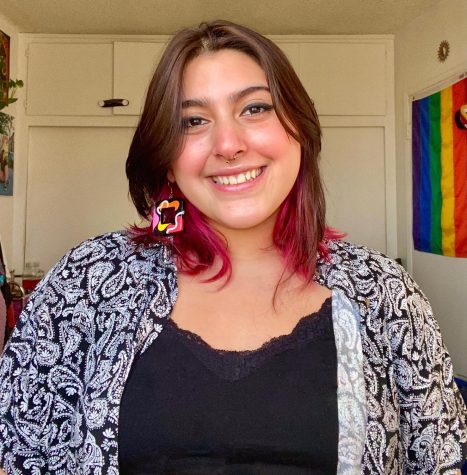The Dangers of the Internet: Online Predators
Parents must protect their children from the dark side of the internet
As children begin to become more exposed to the online world, their safety is put at risk. “Tech companies are reporting a boom in online photos and videos of children being sexually abused — a record 45 million illegal images were flagged last year alone — exposing a system at a breaking point and unable to keep up with the perpetrators,” according to an article titled, “An Explosion in Online Sex Abuse: What You Need to Know,” published on The New York Times.
February 23, 2021
Witnessing a 5-year-old with a technological device glued to their face is pretty normal in modern-day society. Although these gadgets work wonders when a child needs to be tamed for a long span of time, online predators’ access to children has increased, and unsupervised internet access does not protect children, according to justice.gov.
Since the start of the global pandemic, it is clear that all the extra time spent at home has led to even more online entertainment. With the increase in online use, it is important to keep an eye on young ones to make sure they’re staying safe on the internet. Online predators are nothing to take lightly, and they can actually be found on multiple websites, gaming forums, and social media platforms. “Tech companies are reporting a boom in online photos and videos of children being sexually abused — a record 45 million illegal images were flagged last year alone — exposing a system at a breaking point and unable to keep up with the perpetrators,” according to an article titled, “An Explosion in Online Sex Abuse: What You Need to Know,” published on The New York Times.
That same article published in The New York Times also discusses how online predators take it to the dark web to exchange illegal images of their victims, thousands of photos are found yearly, making it hard for investigators to keep up. Although the dangers of the internet are extreme when it comes to online predators, there are ways to avoid getting young loved ones wrapped up with a criminal. “Parents can do better by allowing time limits on social media and replacing that time with productivity. Also, making sure they inform kids about certain things beforehand and even placing locks could help. It’s important not to invade a child’s privacy by looking into messages or search history,” a student who wished to remain anonymous said, “Simply talking to the child and informing them of these dangers could go a long way.” Children who are uninformed naturally tend to get curious, which can lead them to find inappropriate things or even encounter a predator.
It is completely normal for a child to take it to their search engine if curious about anything, but if they go unsupervised or unrestricted, their curiosity could lead them to unsafe sites, people, and actions. “I think it’s just out of naiveness because they’re not aware, you know? It’s not even their fault, they’re literally children, they’re preyed upon by these men and women, they’re more vulnerable,” said Perry, a UCLA Student. As children are more naive, it is easy for predators to apply their manipulation tactics to them by making them “comfortable” with them. According to Wikipedia, children become more comfortable and likely to engage in risky behaviors due to the “anonymity of online conversations.”
Not only does unsupervised internet use place younger ones in danger, but the sites and actions they may engage in can also affect their mental health forever.
I don’t want to go into the details, but basically, I was 11 years old and men would message me on Kik, asking or threatening me to send nude photos, and I would,” said anonymous; “I was surprised that guys liked me to the point that they wanted to see me that way, and being so young and naive I gave in to the idea as I was influenced by romance movies and was also very insecure about myself. I had nobody around to see what I was doing. Nobody ever noticed what was happening.”
There is no doubt that children have engaged more on the internet as technology has expanded, but this new wave of young users has influenced them negatively, and it’s visible in the classroom. “…because I work in a classroom…it’s very odd to me when I say certain words, like “Uranus”, and the kids start to laugh. They know a lot more than you think,” Monica Rufino, a student studying at Cerritos College who works for the Boy’s and Girl’s club, said. Rufino also said, “We have seen students search up pornographic stuff.” She said that one of her students has even talked about it in class. “He sees a lot of inappropriate things [and] he’s only a second-grader; his mom had no idea about it,” she continued.
As children become more exposed to the internet, it is extremely important that they do not go unsupervised. “It’s important because, as a victim of online predators, I know how dangerous and damaging it could be to encounter these evil people online. Those photos I sent are child pornography, and there are people out there who had access to them and threatened me for them. You need to pay attention to what your kids are seeing online, but you also can’t approach it in a way that makes them feel as if you are invading, you have to have civil conversations with your children not to create fear, but to educate them,” anonymous said.


